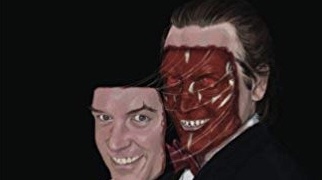by
Daulton Dickey.
 —So tell me why you’re here.
—So tell me why you’re here.
—I’m tired. Not exhausted, but … just, I don’t know, tired. Sarah’s wearing that gray face sad people wear, that mask with dead eyes looks like an unpainted statue.
—Can you describe it? “Tired” is so …
—Not clear?
—Mmm Hmm.
—I didn’t want no attention, she says. —Some people, I think, will think I did it for attention. But it wasn’t attention I wanted.
—What did you want? What did you hope to achieve?
—Shit. What you think?
—And that seemed like a solution?
—No, she says. —Not a solution. An escape.
—But an escape’s not a solution.
—Didn’t say I was looking for no solution. Escape sounded fine by me.
The doctor glances at his notes. He spins his pen between his fingers and clicks his tongue. Seems like there’s some place he’d rather be, like maybe drinking martinis on his yacht or whatever it is doctors do when they ain’t talking to suicides.
—It says here you’re on LexiPro and Wellbutrin, he says. —Were you taking them when you attempted …
—Hell yes I was, Sarah says. —They numbed things, but they didn’t stop the thoughts, the bad thoughts flying through my head. They didn’t make me feel full when all I feel is empty all the time. (more…)



 —So tell me why you’re here.
—So tell me why you’re here.




 Empty and broken, the city streets evacuated with a sense of calm. Everything shattered. Glass lay like snowflakes, in piles tall as people. The sky cracked. A bubble, dark as night, bloomed in the center of the crack. No good fucking reptiles swallowed everything. Traces blasted through the sky: clouds, maybe. Or veins. Blood spurted from them, rained down, and covered the city. Definitely veins. Where was the man who played the violin? He stood in the street in a minute earlier. Then he vanished. Did he vanish? Where had everyone gone?
Empty and broken, the city streets evacuated with a sense of calm. Everything shattered. Glass lay like snowflakes, in piles tall as people. The sky cracked. A bubble, dark as night, bloomed in the center of the crack. No good fucking reptiles swallowed everything. Traces blasted through the sky: clouds, maybe. Or veins. Blood spurted from them, rained down, and covered the city. Definitely veins. Where was the man who played the violin? He stood in the street in a minute earlier. Then he vanished. Did he vanish? Where had everyone gone? 
 “Janie, will you please eat something? Please? Maybe later, okay? Are you comfortable? Would you like a blanket? You look cold, Janie. Are you cold? Do you need a blanket?”
“Janie, will you please eat something? Please? Maybe later, okay? Are you comfortable? Would you like a blanket? You look cold, Janie. Are you cold? Do you need a blanket?”






 I sit and breathe and think about the sunset floating over waters. Dipping into the abyss, the sun melts and drips to the bottom of the planet, where it reforms and ignites and floats along the planet again. Sometimes I’m indoors when this happens, sometimes I’m outdoors, but the plunge in temperature never ceases to astound me. And when the bowl overhead darkens, and when the air in front of me freezes, and when the goal of the night is to survive in a dreamless state, I know I’ve made it another day. Another day. Where the wind shatters the frozen air and life reboots and I realize I’m a different person—similar in appearance, perhaps, and sharing certain idiosyncrasies—from the person I was yesterday. And whenever the new day forms, and the old me transmogrifies into the new me, I slip into the habit of living in the past and seldom realize the new me is different, and in some cases distinct, from the old me.
I sit and breathe and think about the sunset floating over waters. Dipping into the abyss, the sun melts and drips to the bottom of the planet, where it reforms and ignites and floats along the planet again. Sometimes I’m indoors when this happens, sometimes I’m outdoors, but the plunge in temperature never ceases to astound me. And when the bowl overhead darkens, and when the air in front of me freezes, and when the goal of the night is to survive in a dreamless state, I know I’ve made it another day. Another day. Where the wind shatters the frozen air and life reboots and I realize I’m a different person—similar in appearance, perhaps, and sharing certain idiosyncrasies—from the person I was yesterday. And whenever the new day forms, and the old me transmogrifies into the new me, I slip into the habit of living in the past and seldom realize the new me is different, and in some cases distinct, from the old me.